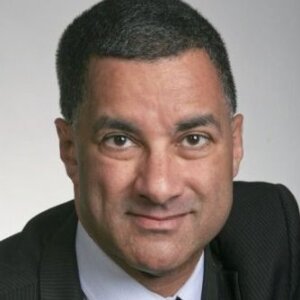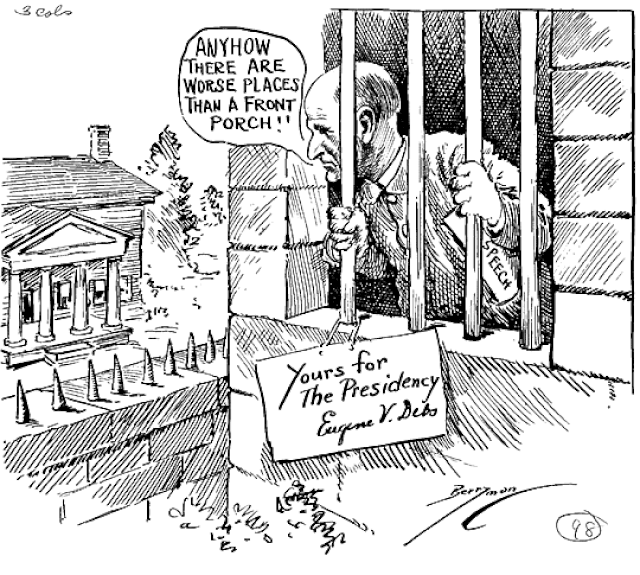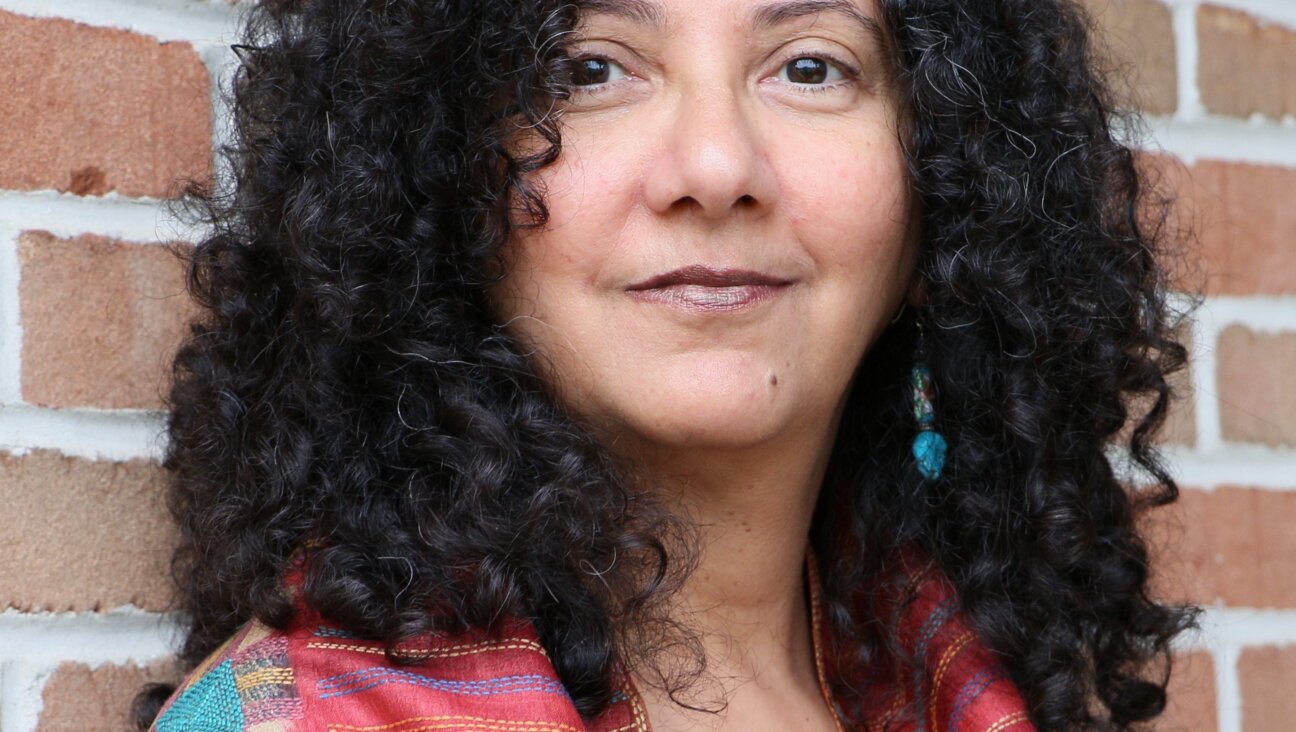After 50 years, pioneering female rabbi is still practicing peace — and protesting
Lynn Gottlieb — one of the first women ordained as a rabbi in the U.S. reflects on her activist career — with no regrets
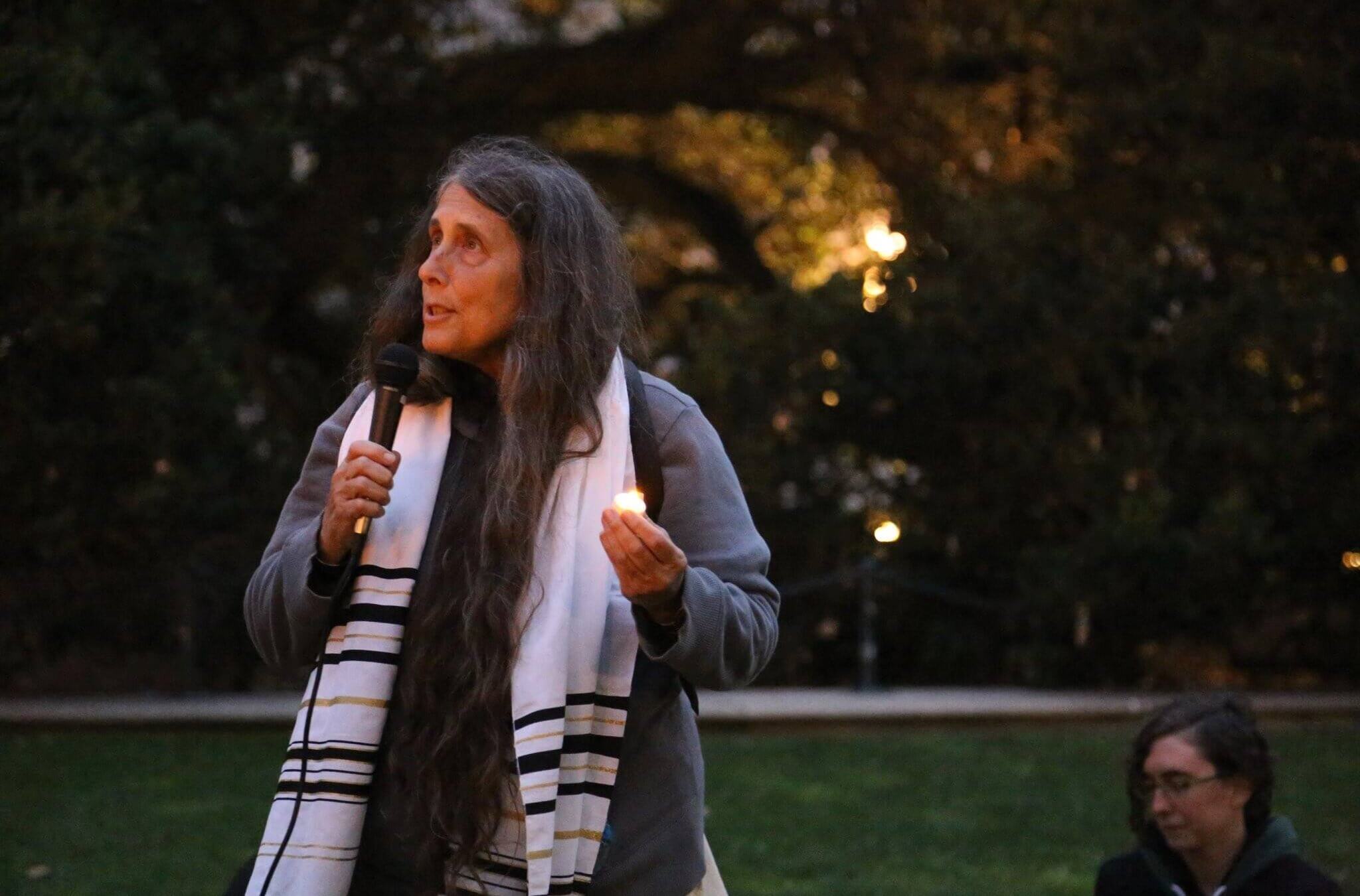
Rabbi Lynn Gottlieb speaks at the Interfaith Challenge to Protest Curfew in New York in 2015. Gottlieb is celebrating 50 years as a rabbi this September. Courtesy of Lynn Gottleib
Rabbi Lynn Gottlieb is recognized as the first woman ordained by the Renewal movement, in 1981, and one of the first 10 female rabbis in the United States. She also could be considered the first female spiritual leader trained by the Conservative movement when she led High Holiday services at a New York congregation for the deaf eight years earlier.
Ask about her denominational affiliation today, however, and she’ll respond “shomeret shalom” — practicing peace.
Born in Allentown, Pennsylvania, in 1949, Gottlieb first took the pulpit of Temple Beth Or of the Deaf while a student at the Conservative movement’s Jewish Theological Seminary 50 years ago on Sept. 26, 1973. She served there, and also at Mishkan, an experimental shul in New York, through 1980. She was ordained in 1981 by Rabbis Everett Gendler and Zalman Schachter. She then co-founded Congregation Nahalat Shalom in Albuquerque, New Mexico, becoming rabbi emeritus in 2005. She now lives modestly in Berkeley, California, where she continues her writing, storytelling, art and interfaith and peace activities.
Among the latter are the Muslim-Jewish Peace Walk, her advocacy for BDS as a nonviolent tactic for Palestinian rights, and leading a delegation to Iran in 2008 for the Fellowship of Reconciliation, becoming the first female rabbi to enter that country since its 1979 revolution. The author of several books, including Trail Guide to the Torah of Nonviolence and the forthcoming Way of the Mishkan, Gottlieb spoke with Forward Editor-at-Large Robin Washington shortly before her 50th anniversary as a rabbi. Their conversation has been edited for length and clarity.
One of your books is The Trail Guide to the Torah of Nonviolence. Is there really a Jewish basis for pacifism? Christianity has the Sermon on the Mount, which is decidedly pacifist, but the Torah is filled with incredible violence.
Anyone who tries to pin a verse in the Bible on God is not acknowledging the human creation of these stories. Are these stories coming from the kings? Are they coming from the prophets? Are the stories coming from conquerors? Is it conquest or equity? The voice is in our hands.
When we see the face of the Divine in each other, then of course we can’t take a life or harm.
At Nahalat Shalom, very early on I asked, “Well, what shall we do with Haman?” And somebody would yell, “Hang him!” And inevitably, the whole place would yell, “No!” I didn’t even moralize about it. And Haman got the most amazing restorative
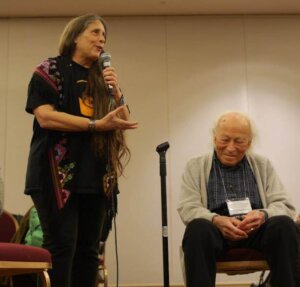
justice tasks ever! But then we could study the story and understand where it came from and who tells it and what it means to Persian Jews who actually have the graves of Esther and Mordecai in Hamadan.
Rabbi Everett Gendler, who died in 2022, was a significant figure in the Civil Rights Movement and many other progressive causes. Tell me how he came to ordain you.
I started a Jewish feminist theater in 1975. I was invited to perform in Boston. Not only was Everett in the audience, he was in the front row. He immediately came up and was so supportive. And right there I thought, “Oh my goodness, is this my rebbe?” So we began a friendship and I found out he too is a member of the Fellowship of Reconciliation and all about his history. I would go and study with him. And whenever I visited, he always had a gig for me.
What does “shomeret shalom” mean — or what do you mean by it?
I made up this term. Everett preferred “rodef shalom.” “Rodef” means “you pursue it,” meaning that you should run after peace. You shouldn’t be passive and wait until peace — shalom — comes to you. That is like tzedek, tzedek, tirdof — “justice, justice, you shall pursue.” It’s the same idea with peace.
That sounds like the guiding mantra of the Fellowship of Reconciliation: “There is no way to peace, peace is the way.”
Right. But “shomer” to me refers to a practice. So when people are shomer kashrut, they keep kosher. When they’re shomer Shabbat, they keep Shabbat. Shomer shalom is keeping peace or practicing peace.
So that’s your denomination now?
Denominational affiliation does not matter. The person standing before you matters. Something small, but for me very important, is that anybody can be called to the Torah. You don’t have to be Jewish to be called to the Torah. If you are celebrating a bar mitzvah, the whole family comes up. Everybody carries the Torah in their way. Everybody is a Torah. Everybody has wisdom. I want people to walk in the door and feel like, “Oh, yeah, this feels like a place where I could feel at home.” Trans, gay, lesbian, gender nonbinary; everyone is a divine image. We’re not having a debate whether or not someone is a divine image. Of course they are!
I admire people who can thrive in existing institutions, because I never have been able to do that. I sometimes describe myself as a street rabbi.
You didn’t mention a husband on the questionnaire you filled out for this interview. Not trying to get personal here, but other than your mentor rabbis, have men been helpful in your life at all?
Patriarchy is a very damaging system. Three out of five women in their lifetime will experience assault or sexual violence. But I have so many beloved male students who come to me with deep respect and a desire to unpack and disassemble patriarchy in themselves. And I have such a good relationship with my son, who’s 39 and a public defender.
But relationships?
It’s completely nobody’s business.
You have a play you’ve taken on the road.
It’s called “Magidah on Sacred Ground.” It’s about my pilgrimage toward justice. It’s seven stories. I could bring it to you if you’d like. And I just started a Jewish storytelling guild.
As you look back, any regrets? If you had followed a more traditional path, you could be retired from a large synagogue and have every creature comfort you could want.
Who says I don’t? I have every creature comfort I need. If you’re making art and theater and poetry and writing and working with people who are often marginalized, you don’t really have time to pursue those other kinds of comforts. And I am blessed to be savta (grandmother) to Lila Sivan and enjoy the proximity of my beloved family, friends and fellow travelers who pursue justice and peace.
A message from our Publisher & CEO Rachel Fishman Feddersen

I hope you appreciated this article. Before you go, I’d like to ask you to please support the Forward’s award-winning, nonprofit journalism during this critical time.
We’ve set a goal to raise $260,000 by December 31. That’s an ambitious goal, but one that will give us the resources we need to invest in the high quality news, opinion, analysis and cultural coverage that isn’t available anywhere else.
If you feel inspired to make an impact, now is the time to give something back. Join us as a member at your most generous level.
— Rachel Fishman Feddersen, Publisher and CEO



